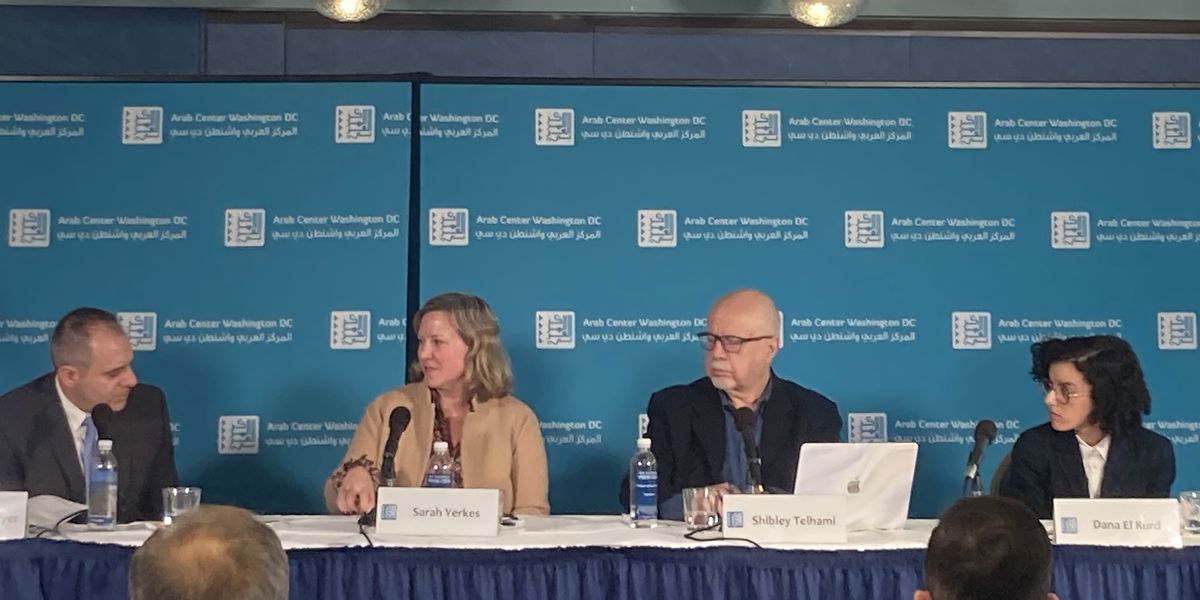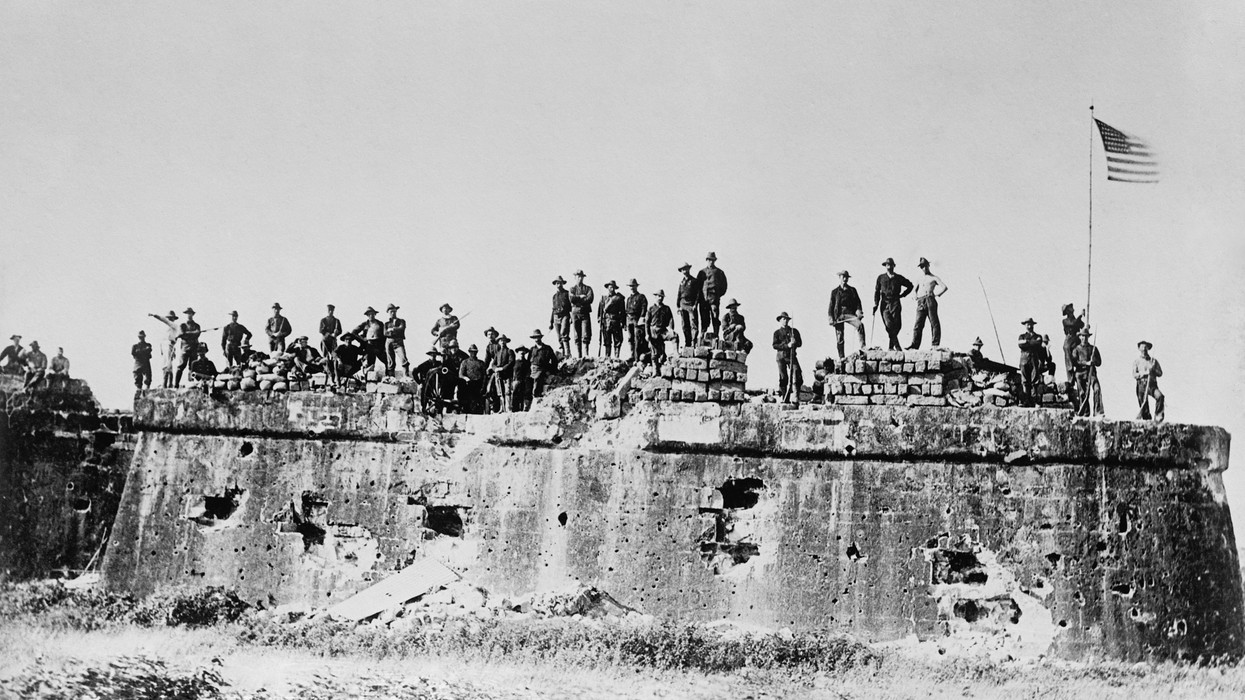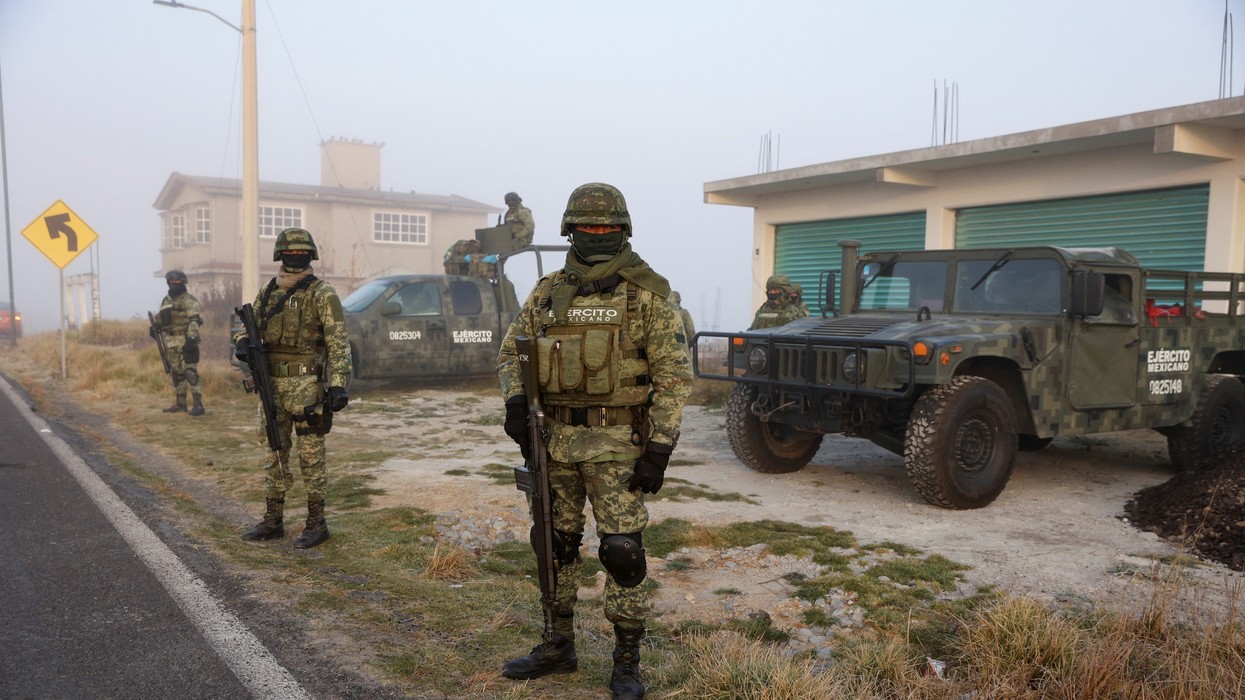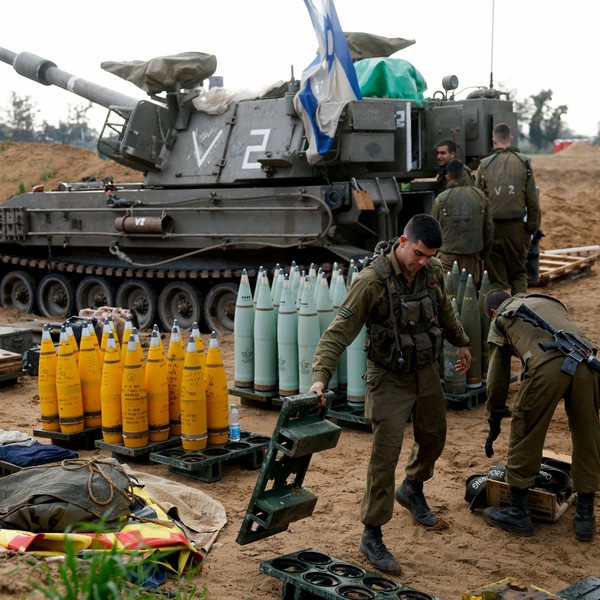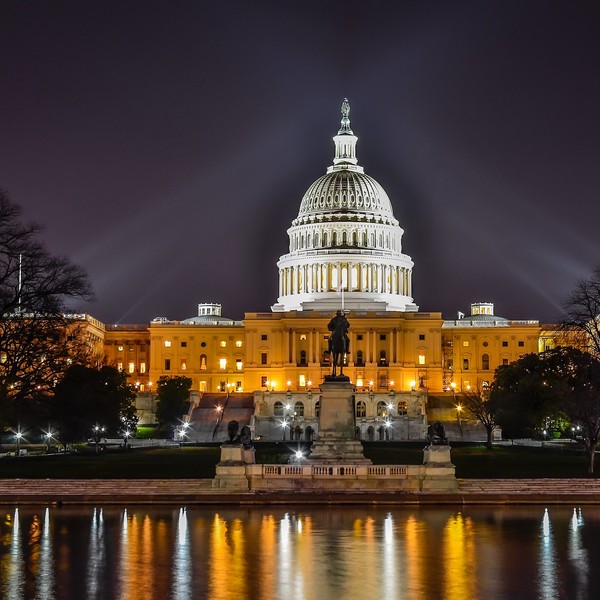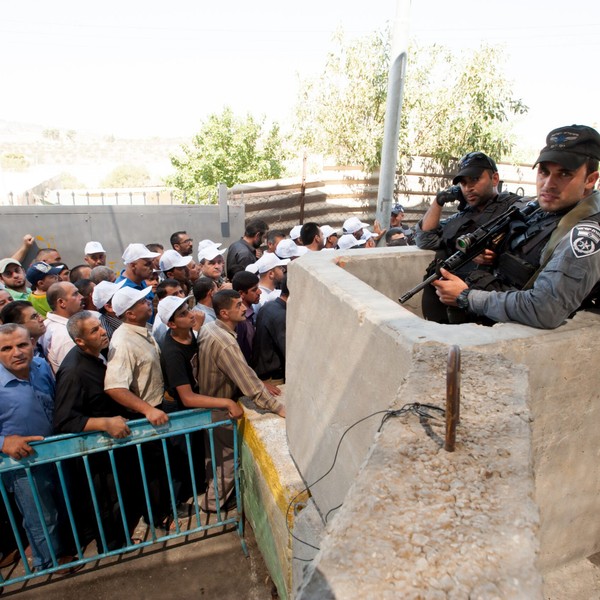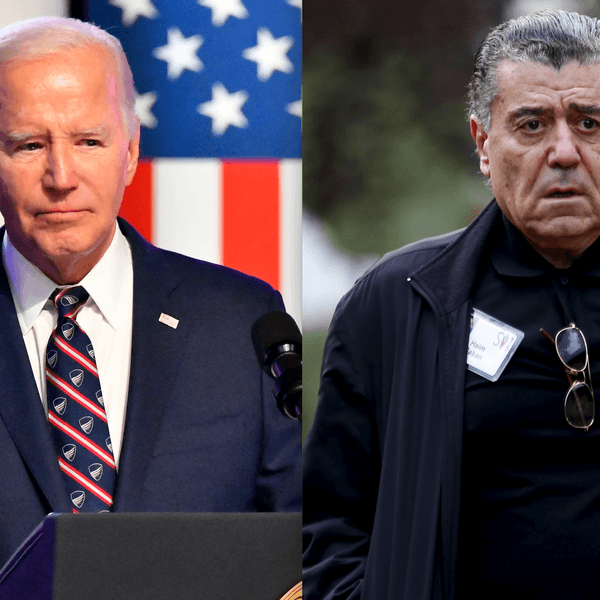Israel’s war in Gaza – and Washington’s support for it -- is inflicting serious damage on U.S. standing across the Arab world, according to a representative poll of 16 Arab countries released Thursday by the Arab Center Washington DC.
An aggregate average of 82% of respondents across the region described the U.S. response to the war as “very bad,” while another 12% described it as “bad.” And an aggregate of 72% of respondents said that U.S. policy toward the war in Gaza will harm Washington’s “image” in the region either “somewhat” (22%) or “very much” (50%). Similar percentages said it will harm U.S. “interests” in the region as well. An aggregate of 76% said their views on U.S. policy in the Arab world had “become more negative” since the war began.
An aggregate average of more than half of respondents (51%) also said they regard the United States as constituting “the biggest threat to the peace and stability of the region” – up from the 39% who named the U.S. as the greatest threat in an Arab Center poll in 2022. One in four respondents (26%) described Israel as the region’s greatest threat.
The poll, which queried 8,000 respondents across the 16 countries that together account for 95% of the Arab region’s total population, was conducted by telephone between December 12 and January 5; that is, during the third month of Israel’s campaign in Gaza. The countries included Saudi Arabia, Oman, Kuwait, Yemen, and Qatar in the Persian Gulf sub-region; Lebanon, Jordan, Iraq, and the Palestinian West Bank across the Levant and Mesopotamia; and Mauritania, Morocco, Algeria, Tunisia, Libya, Egypt, and Sudan in North Africa. Bahrain, the United Arab Emirates, and Syria were not included.
The aggregate regional opinions were calculated as an average of the results of the 16 surveyed countries, with each country given the same weight in order to ensure that the opinions of respondents in the most populous countries did not dominate the survey’s findings.
The results of the poll, which was carried out in cooperation with the Arab Center for Research and Policy Studies in Doha, Qatar, should cause some alarm in Washington, according to Shibley Telhami, a professor at the University of Maryland.
“This is a historic moment in some very important ways,” Telhami said at an event presenting the survey findings at the National Press Club on Thursday. “The scale of what we have seen and the role the U.S. has played in this deeply painful crisis has been so large and been perceived to be so large that it’s going to leave an imprint on the consciousness of a generation in the region that is going to outlast this administration and outlast this crisis.”
Respondents believed Washington to be the key component enabling Israel to carry out its war on Gaza, in which more than 27,000 people, mostly women and children, have reportedly been killed to date. Exactly half of the Arab public named “U.S. military and political support” as the most important factor, with an additional 15% saying it was the second most important. The “lack of decisive action” from Arab governments toward Israel, which was the second popular choice, was named by 14% of respondents as the most important factor and by 23% as the second most important.
The poll also showed a notable increase of opposition in the Arab world for recognizing Israel in certain countries. An aggregate of 89% of respondents said they oppose recognition of Israel, while only four percent favored it, the lowest percentage since the question was first posed in 2011.
Of particular note in that respect were responses from respondents in Saudi Arabia. Normalizing relations between Saudi Arabia and Israel has been a key goal of the Biden administration, which has been engaged in intensive negotiations with Riyadh over the terms for normalization, including Saudi demands for a ceasefire in Gaza. The poll found that the percentage of Saudi respondents who oppose the recognition of Israel has jumped from 38% the last time the question was asked (in 2022) to 68%, an increase apparently largely attributable to the Gaza war. (Twenty-nine percent of respondents in the kingdom declined to answer the question.)
Opposition to normalization also rose by about ten percentage points over the year in Morocco and Sudan — both of which normalized relations with Israel in 2020 in what is known as the “Abraham Accords” — to 78% and 81%, respectively.
In another blow to Biden’s policy, which has repeatedly stressed its commitment to the creation of a Palestinian state alongside Israel since the Gaza War began, large majorities of respondents in each country said they did not consider Washington to be serious about following through. An aggregate average of 68% of respondents said Washington was “not at all serious” about the commitment, while another 13% said Washington was “somewhat unserious.”
Skepticism was particularly high in Jordan, Lebanon, and the West Bank which together house the greatest number of Palestinian refugees in the Arab world, but 77% of Saudi respondents said Washington was either “not at all serious” (62%) or “somewhat unserious” (11%).
The poll also found that the Palestinian issue has resumed its place as a top priority for Arab publics as a whole. Asked whether they considered the Palestinian cause as “one for all Arabs and not the Palestinian people alone,” an aggregate average of 92% of respondents chose the first option, 16 percentage points higher than when the same question was asked in 2022. In Saudi Arabia, the percentage agreeing with that view jumped from 69% to 95%. Similar large increases were found in Iraq, Egypt, and Morocco.
As for views about the positions of key Arab countries toward the Gaza war, respondents were most critical of the UAE, with an aggregate average of 67% rating Abu Dhabi’s position as either “very bad” (49%) or “bad” (18%). Saudi Arabia did not fare much better with an aggregate of 64% of respondents describing its position as “very bad” (44%) or “bad” (20%). Majorities also disapproved of the positions of Egypt and the Palestinian Authority.
The war has also reduced the hope that there can be peace between Israel and Palestine. An aggregate of nearly 60% of respondents said that during the war they had “become certain that there will be no possibility for peace with Israel,” while only 13% still believed in the possibility of peace.
Ultimately, the test of whether the public’s reaction to the war will be how governments in the Arab world respond, Telhami said at Thursday’s event. The first evidence, he said, will be whether or not Saudi Arabia insists on the creation of a Palestinian state as part of any normalization agreement with Israel and doesn’t settle for the promise of statehood at some point in the future,
“That will be the real test for has this horrible crisis led to a public, so activated in the Arab world, including Saudi Arabia, that governments are just not going to do things that are gonna go against their feelings,” he said.
